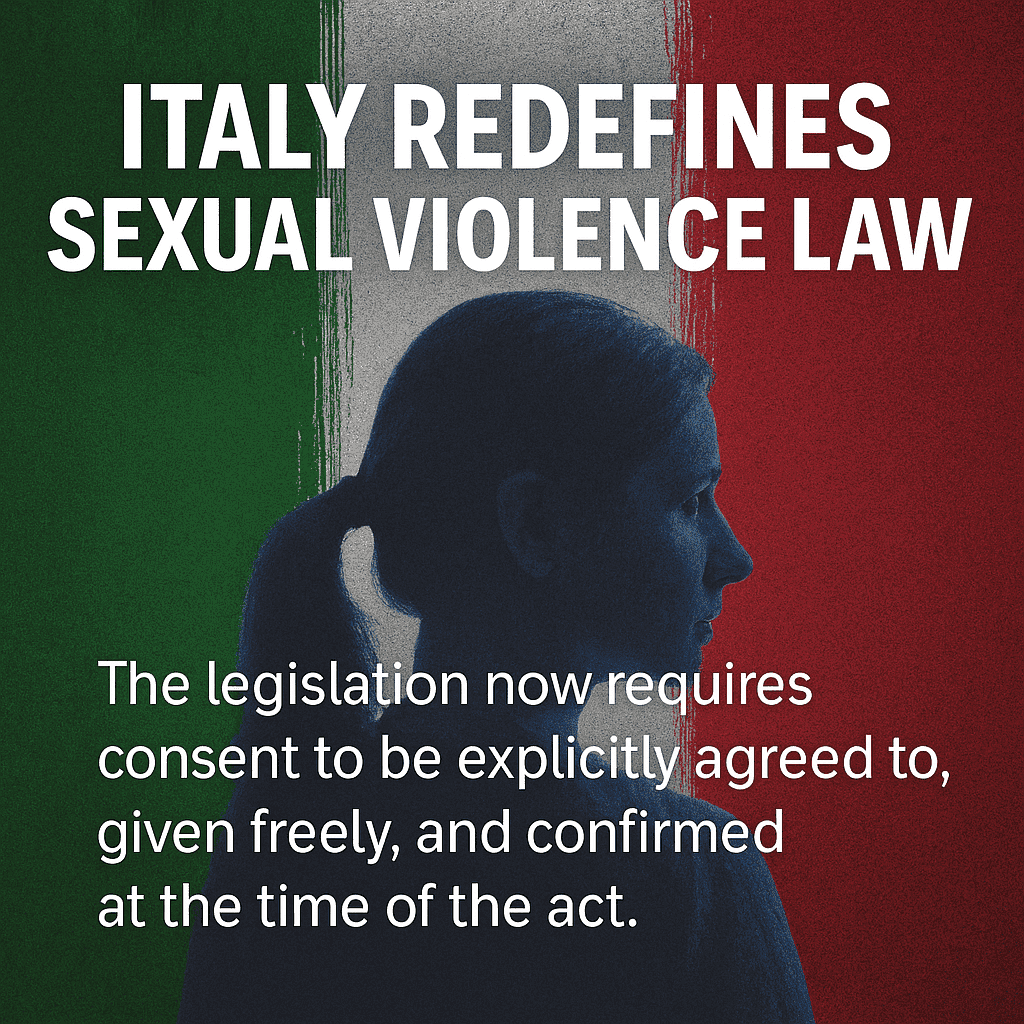Italy’s Parliament has taken a landmark step by enacting an explicit consent sexual violence law in Italy, replacing older legislation that relied primarily on evidence of force, threats, or intimidation. The amendment to Article 609-bis stipulates that any sexual act performed without the free and current consent of the involved person constitutes sexual violence and carries penalties between six and twelve years. This marks a substantial departure from prior legal standards.
The reform emerges from cross-party collaboration: deputies Michela Di Biase (Democratic Party) and Carolina Varchi (Brothers of Italy) co-sponsored the amendment, and both party leaders, Elly Schlein and Giorgia Meloni, publicly backed the measure. The law’s supporters describe the update as a cultural shift: “Sex without consent is rape,” Di Biase affirmed during a discussion of the explicit consent sexual violence law in Italy.
Under the new framework, consent must be given freely, consciously, and unequivocally at every moment of the act. It may be revoked at any point, and any act obtained via coercion, deception, misuse of power, or exploitation of physical or psychological condition is automatically non-consensual. By focusing on consent rather than victim resistance, the explicit consent sexual violence law in Italy aligns the country’s penal code more closely with international standards, including the Istanbul Convention.
Implementation will require updates to justice system protocols, as prosecutors and courts will need training to apply the new consent-based criteria, law enforcement must revise investigation guidelines, and victim support services must adapt to ensure the correct handling of cases under the explicit consent sexual violence law in Italy.
Looking ahead (speculatively): If enforcement is effective, Italy could serve as a model for other jurisdictions still lagging in consent-centered laws — catalyzing reforms across Europe. However, success depends on genuine application beyond legislative rhetoric.
The adoption of the explicit consent sexual violence law in Italy stands as a significant legal and societal milestone — signalling that consent is non-negotiable, and legal protections must reflect that reality.









